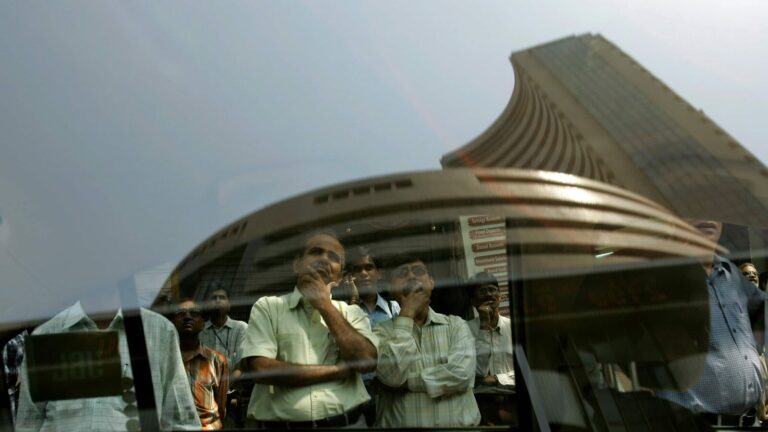Indian stock markets are entering the 2024 Lok Sabha election season with expectations that the current government will remain in power, and as such, the market is already pricing in policy continuity.
Various opinion polls have projected the NDA to win between 315 and 329 seats, while no poll suggests a revival of the INDI alliance, with the average seat win ranging from 93 to 156 seats.
Analysts believe improving macro variables and a government focus on infrastructure development while remaining fiscally prudent have attracted investor interest in recent years.
Read also: The NSE Nifty 50 index is likely to rise by around 3% as PM Modi’s chances of winning a third term are high, the report said.
Volatility rose in domestic equity markets and concerns about low voter turnout initially rattled markets, which, while not a reliable indicator, are expected to have an impact on the seat tally for Prime Minister Narendra Modi’s Bharatiya Janata Party (BJP).
However, brokerage JM Financial said it had not found any clear trends in the relationship between past voter turnout and election outcomes.
Voter behaviour varies from election to election depending on the narrative being portrayed at the time.For example, the NDA retained power in 1999 despite low voter turnout, but lost the next election (2004) to the Congress-led United Progressive Alliance (UPA) due to low voter turnout.
“Typically, growing dissatisfaction with the incumbent government or increased interest in the issues raised by a political party (challenger) tends to lead to increased voter interest and turnout, which in turn increases the likelihood of a change in government. None of the above scenarios have materialized in this election,” JM Financial said.
Read also: 2024 Lok Sabha Elections: 4 Investment Strategies to Follow Ahead of Next Week’s Results
Meanwhile, as the elections began, volatility in the Indian stock market increased sharply.
JM Financial’s assessment of past election periods has found that volatility tends to spike as the election begins and then drop sharply around the date of the election results as uncertainty decreases. Similarly, the firm believes the VIX will peak this election cycle, decline by the date of the election results, and eventually drop to more normal levels.
With policy continuity being the base case, brokerages are expecting a healthy rise in prices following the June 4 election results and believe any dips are a buying opportunity.
How have markets performed in the past five general elections?
An assessment of market returns in the last five general elections by JM Financial reveals that while overall stock market returns turn positive three months after the election results are announced, a sector-wise look shows that almost all sectors see positive returns six months after the election results are announced.
SMIDs (small and midcaps) have outperformed large caps after results were announced during every previous cycle. We acknowledge that the above approach equalizes the performance of individual sectors and therefore may not repeat going forward. Analysing the 2019 post-election returns will not give the true picture as concerns over a global economic slowdown impacted market performance in August 2019. Hence, we look for a period when market conditions were similar i.e. the 2014 general elections when equities were already performing well in the pre-election phase, the brokerage said.
Read also: Trading strategy for 2024 Lok Sabha elections: Investors are overestimating gains, says Prudent Equity’s Diwakar Rana
At that time, it was observed that sectors such as automobile, consumer durables and healthcare outperformed the benchmark indices, while at a broader level, small and mid-cap companies outperformed the large caps.
What should we expect following the results of the Lok Sabha elections?
JM Financial expects the Indian equity market to see a healthy rally post the election results and believes any dips are worth buying into.
“Policy continuity will see the government’s primary focus remain on infrastructure development and manufacturing, benefiting the defence and capital goods sectors. However, unlike past periods, this cycle we favour large caps over mid and small caps in 2024, seeking valuation comfort,” it said.
Read also: Stay invested, hedge, and prioritize large caps: Devina Mehra decodes strategies for trading a volatile stock market
Sector-wise, brokerages are comfortable with the valuations of the Private Banking and Consumer Goods sectors and expect them to outperform their benchmarks in the near term.
Currently, the Nifty is trading at 20 times its forward PE, which is close to one standard deviation from its long-term average and is considered reasonable.
After the election results, market attention will shift to the Union Budget, which is likely to be presented in July.
Check the latest stock market information here
Disclaimer: The views and recommendations expressed above are those of the individual analysts or brokerage firms and not that of Mint. We recommend checking with a certified professional before making any investment decisions.
You are on Mint! India’s No.1 News Site (Source: Press Gazette). For more of our business coverage and market insights, click here!

